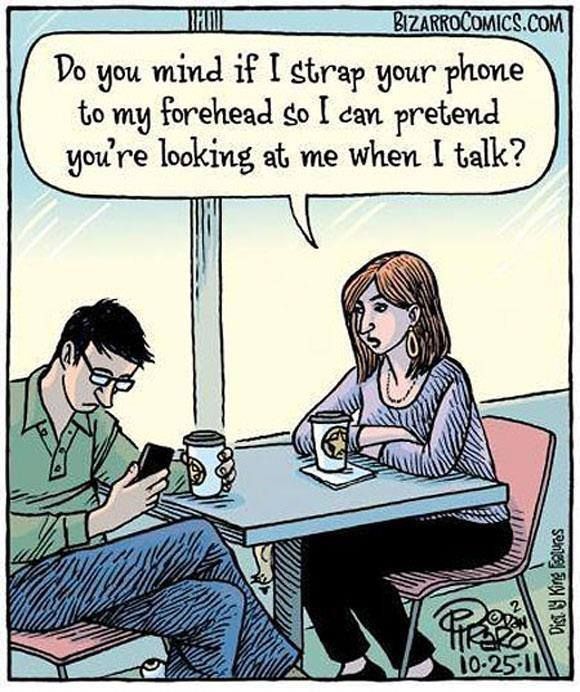Phubbing: The Art Of Destroying A Relationship
Aug 13, 2019 • 112 views
Do you remember the time when you were talking to someone, pouring your heart out to them and then suddenly they picked up their phone and you felt a sudden prick in your heart- the feeling of being ignored, rejected; or the time when you got a scolding from your parents because instead of joining the conversation at the dinner table, you were using your mobile phone, well just to tell you all of this has a term for it – PHUBBING. Technically a pormanteau of phone and snubbing, Phubbing is a neologism coined by a especially called group of lexicographers, authors and poets in the year 2012. The term came into existence as a part of a campaign by Macquarie Dictionary to describe the habit of snubbing someone in favour of a mobile phone and was further popularized by the Stop Phubbing campaign created by McCann.
Something as simple and now very unconsciously done as the act of phubbing can lead to a good number of problems. The main reason why we need to realize the harmful effects of it is due to the fact that in a world where mobile phones have become our most prized possessions, we ignoring someone due to our phones seems like a very normal thing. This normality of not realizing our rudeness has become a characteristic of the contemporary times, a characteristic which definitely needs to be erased. Stemming from our urge to constantly check our phones, the fear of missing out (FOMO), phubbing is one of those many teleporting machines (talking metaphorically) born by the growth and increasing involvement of people in the visual world which transfers us from our real surroundings to the never ending space of the internet. When we pick up our phones despite the fact that we are sitting amidst a group of people instead of conversing with each other, we not only detach ourselves from our immediate surroundings but at the same time start a cycle where the people around us will do the same. This then creates a very weird kind of image where people are sitting together but their vision is focused solely on their mobile phones and conversations take place not with the person sitting next to them but with someone from a faraway place through texts. This act not only emphasizes the present day concern of mobile phones and internet departing us from the real world and its problems but also leads us to the discussion where such great involvement with our phones becomes a barrier in our relationships.

From our bond with our parents and friends to our relationship with our partner, all get severed when the attention that must be given to them is shifted to the mobile phones. This kind of shift leads to communication problems, issues in understanding each other, irritation and fights and thus leading to a certain level ofdetachment. This might not seem like a big problem immediately but the realization that the psuedo society in our phones is not going to help us in our difficult times or share our happiness in the good ones will later hit us very strongly. The harmful effects of phubbing are not only limited to relationship problems but it also leads to certain mental health issues. The need for acceptance, to belong somewhere and fit into the moulds created by the society and the ongoing trends are heightened when we take the support of social media instead of real human beings around us. All of this makes us stand at that one common point where it is important to understand the severity of phubbing and how we can prevent ourselves from doing so. Some of the steps include increasing our engagement with our friends and family members by going to meet them, try leaving the phone back at home if going nearby and encouraging others to not use phones in general gatherings but instead to talk with each other.
Another side of Phubbing where it is not an unconscious habit but is done as an act of portraying nonchalance and ignoring someone is simply rude and disrespectful hence, has no excuses justify it. All in all, even in this techno progressive world it is important to draw the lines between what is ok and what is not and at the same time make efforts to not cross that very thin line.

